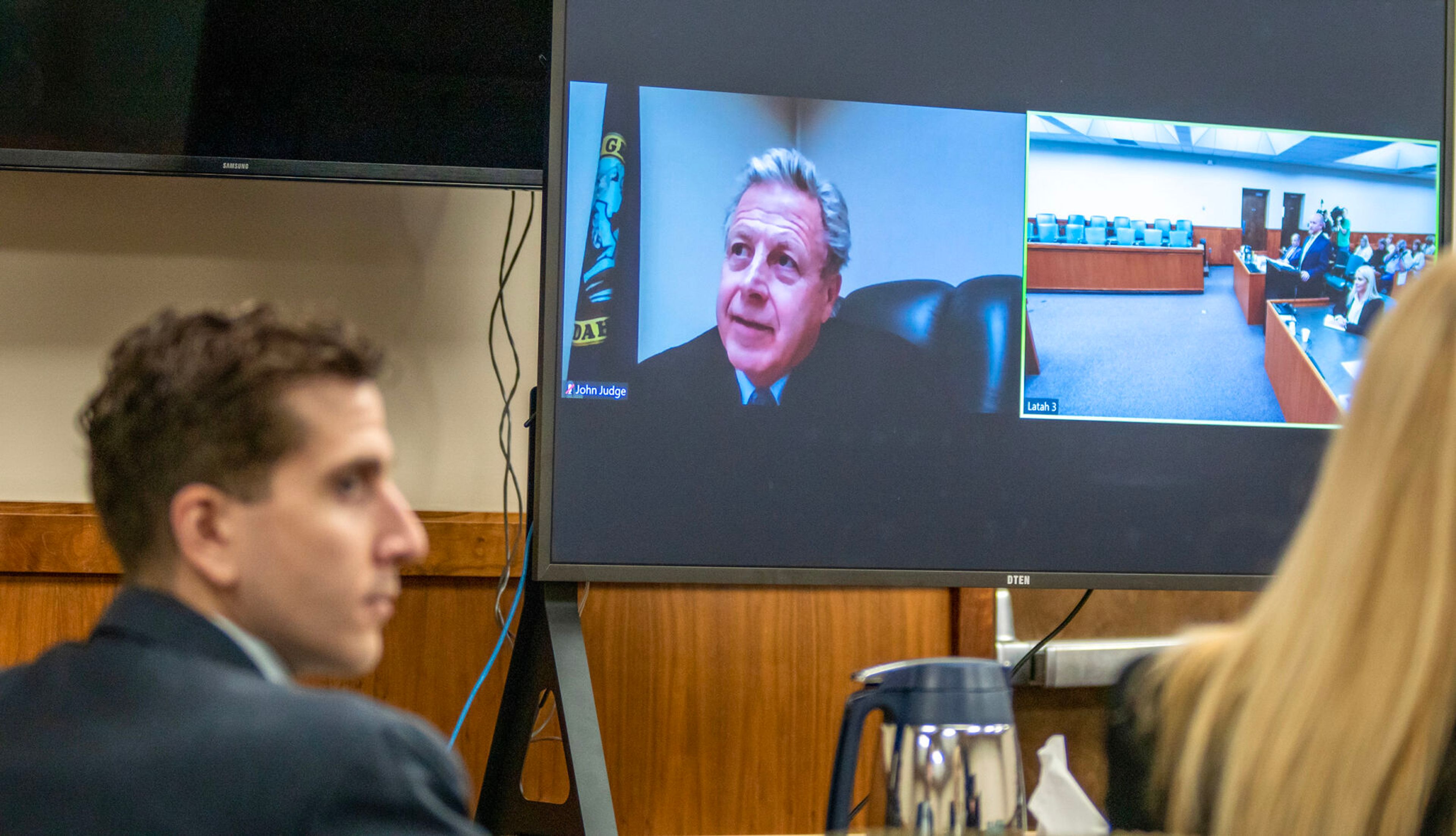Blood found on items at Kohberger’s Pullman apartment
Records show Moscow murder suspect was also banned from WSU campus
Initial analysis showed blood on two items that police seized during their search of Moscow homicides suspect Bryan Kohberger’s Washington State University housing, documents the university released Thursday revealed.
Testing of 50 items found in Kohberger’s student apartment in Pullman came back with at least trace amounts of blood on brown- or reddish-stained bedding, according to an inventory list obtained by the Idaho Statesman through a public records request.
A mattress cover and an uncased pillow each were positive for blood in the “presumptive chemical tests.” A dark red spot on the kitchen counter near the sink could not be tested but was collected, the records showed.
Kohberger, 28, a former WSU graduate student, is charged with four counts of first-degree murder and one count of felony burglary in the stabbing deaths of four University of Idaho students in November. The victims were seniors Madison Mogen and Kaylee Goncalves, each 21, junior Xana Kernodle, 20, and freshman Ethan Chapin, 20.
The newly released WSU records do not indicate whose blood may have been present on the bedding. Among a list of other items police sought, the search warrant directed them to seize evidence of “blood, or bodily fluid or human tissue or skin cells,” or any items that contained them as part of their investigation into the Moscow homicides.
The other 48 tested items, including stains on towels, swabs of bathroom sinks and the shower drain, and a microwave and pizza cutter in Kohberger’s kitchen, each came back without the presence of blood. Not all tested items were seized by police.
Police took the two pieces of bedding, plus the red spot that flaked off the kitchen counter, as part of more than a dozen items seized in the search, as the Statesman previously reported.
Campus police executed the search warrant on Kohberger’s WSU housing and office Dec. 30 — the same day he was arrested in eastern Pennsylvania. Upon discovery of a storage closet assigned to Kohberger’s apartment, the documents showed police sought from a judge and received an amended search warrant for the closet, which was located in the same building as the student housing complex’s laundry area.
Police suspected Kohberger used the storage closet between the Nov. 13 homicides and his trip to Pennsylvania in mid-December to visit his parents during WSU’s winter break, they wrote.
Kohberger’s storage closet had cobwebs leading up to its door, which was found ajar, and with dust on the floor, the documents showed. “It did not appear the closet had been used recently,” wrote Dawn Daniels, WSU’s assistant police chief, in a post-search warrant narrative included in the records.
Like Kohberger’s campus office, nothing was seized or collected from his storage closet, she wrote.
Kohberger banned from WSU campus
The WSU records also include a Dec. 30 letter to Kohberger threatening him with criminal trespassing if he again set foot on the WSU campus, signed by WSU Police Chief Gary Jenkins. Kohberger was served with the document the next day while he was held in jail in Monroe County, Penn., and includes his signature.
While still enrolled in WSU’s criminal justice and criminology Ph.D. program, Kohberger previously interviewed with Jenkins, then-chief of the Pullman Police Department, for a doctoral-level graduate research assistantship for public safety, prior public records obtained by the Statesman showed.
In email correspondence from April 2022, Kohberger thanked Jenkins for his interview for the position.
“Bryan, Great to meet and talk with you as well,” Jenkins responded the same day.
It remains unclear if Kohberger, one of four finalists from his Ph.D. program according to records, received the role. Pullman police and a WSU spokesperson have declined to answer questions or provide documents related to whether Kohberger got the research position.
Also, attorneys for Kohberger on Wednesday formally asked in court for all genetic information that investigators used to identify and justify the arrest of their client on suspicion of the University of Idaho student homicides in Moscow last year.
The discovery request, filed by Kohberger’s public defender, Anne Taylor, in 2nd Judicial District Court in Latah County, seeks a series of DNA-related evidence. Information about all involved laboratories, profile databases, lab technicians and chain-of-custody details is included in the request.







